Symposium: The Role of Universities in the 2020s
The Role of Universities in the 2020s Symposium, explored the role of universities and the tertiary sector in responding to changing labour market needs and a diverse student population.
About the Symposium
The Symposium was part of a series of events commemorating the centenary of the birth of Sir Zelman Cowen, the distinguished Australian scholar, statesman, and a university leader in Australia and internationally.
The Symposium – presented by Victoria University’s Vice-Chancellor, Professor Peter Dawkins AO, the Sir Zelman Cowen Centre and the Mitchell Institute for Education and Health Policy – built on the recent Mitchell Institute policy paper, Rethinking and Revitalising Tertiary Education.
Facilitated by Professor Glyn Davis AC, other speakers included Vice-Chancellors from the universities with which Sir Zelman was closely associated – the University of Melbourne, the University of Queensland, University of New England, Griffith University and Oriel College, Oxford – along with senior leaders from business and industry.
Victoria University is grateful to our sponsors for making this Symposium possible.
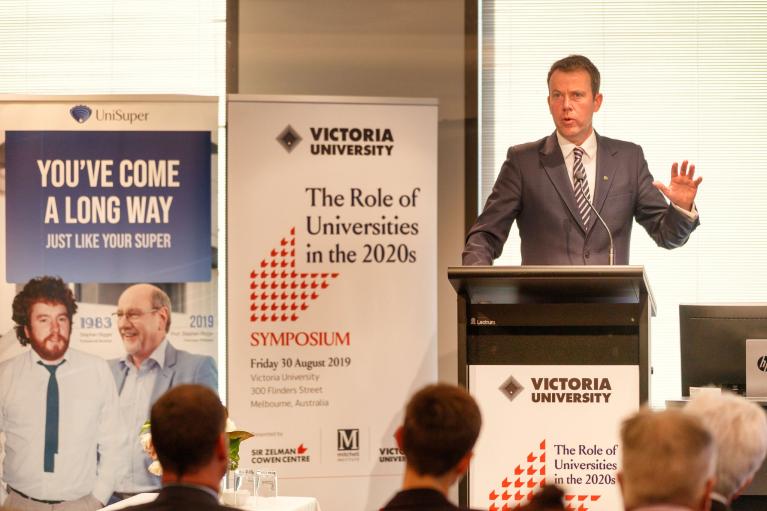
Symposium program
The symposium took place at our City Campus on 30 August 2019 from 9am—2pm.
It was made up of a welcome address and two plenary sessions followed by lunch at 1–2pm.
Delegate Welcome: Professor Glyn Davis AC, CEO Paul Ramsay Foundation
Welcome to Country: Gheran Steel, Boonwurrung Traditional Owner
Opening Address: The Hon Dan Tehan MP, Commonwealth Minister for Education
Summary
Sir Zelman frequently returned to the role of universities in the fabric of Australia’s social, cultural and political future in his writing and speeches.
On this panel, Vice-Chancellors from the universities associated with Sir Zelman reflected on Sir Zelman’s lasting legacy as a university leader and considered the role of universities in Australia’s future, with additional commentary from Dr Don Markwell, research aide to Sir Zelman during the recording of his oral history.
Chair: Professor Glyn Davis AC, CEO Paul Ramsay Foundation
Panellists
- Dr Don Markwell, Warden of St Paul’s College, the University of Sydney
- Professor Carolyn Evans, Vice-Chancellor, Griffith University
- Professor Duncan Maskell, Vice-Chancellor, the University of Melbourne
- Professor Peter Dawkins AO, Vice-Chancellor, Victoria University
- Professor Peter Høj AC, Vice-Chancellor, the University of Queensland
- Film message from Provost of Oriel College, Professor Neil Mendoza
- Professor Annabelle Duncan, Former Vice-Chancellor, the University of New England
Thank you to panellists delivered by Rabbi Shimon Cowen, son of Sir Zelman, and Professor Kathy Laster, Director of the Sir Zelman Cowen Centre, Victoria University.
Morning tea: 11–11.30am
Summary
Australia is facing a changing economy and job market, an ageing population and global challenges like climate change and rapid technological innovation. But what is the data really telling us?
On this panel, Australia’s leading economists and social policy thought-leaders led a discussion on what the data reveals about these future challenges and what this means for the role of universities in Australia’s future.
Panellists
- Professor Beth Webster, Director, Centre for Transformative Innovation, Swinburne University
- Professor Simon Wilkie, Dean, Faculty of Business & Economics, Monash Business School
- Jan Owen AM, CEO Foundation for Young Australians
- Adjunct Professor Alan Kohler AM, Victoria University Business School
Thanks and close: Professor Glyn Davis AC, CEO, Paul Ramsay Foundation
Speakers
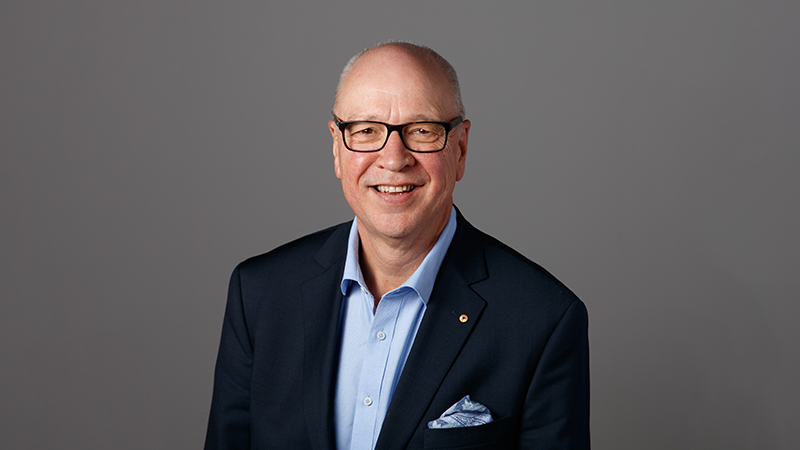
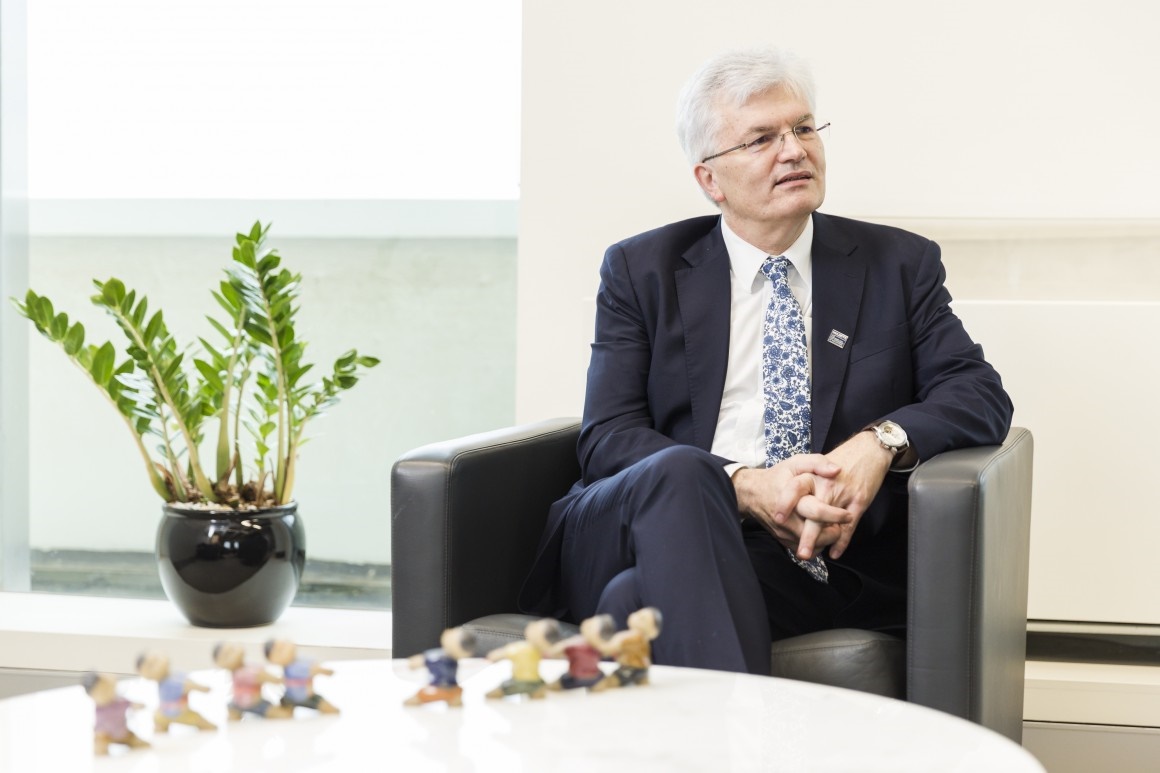
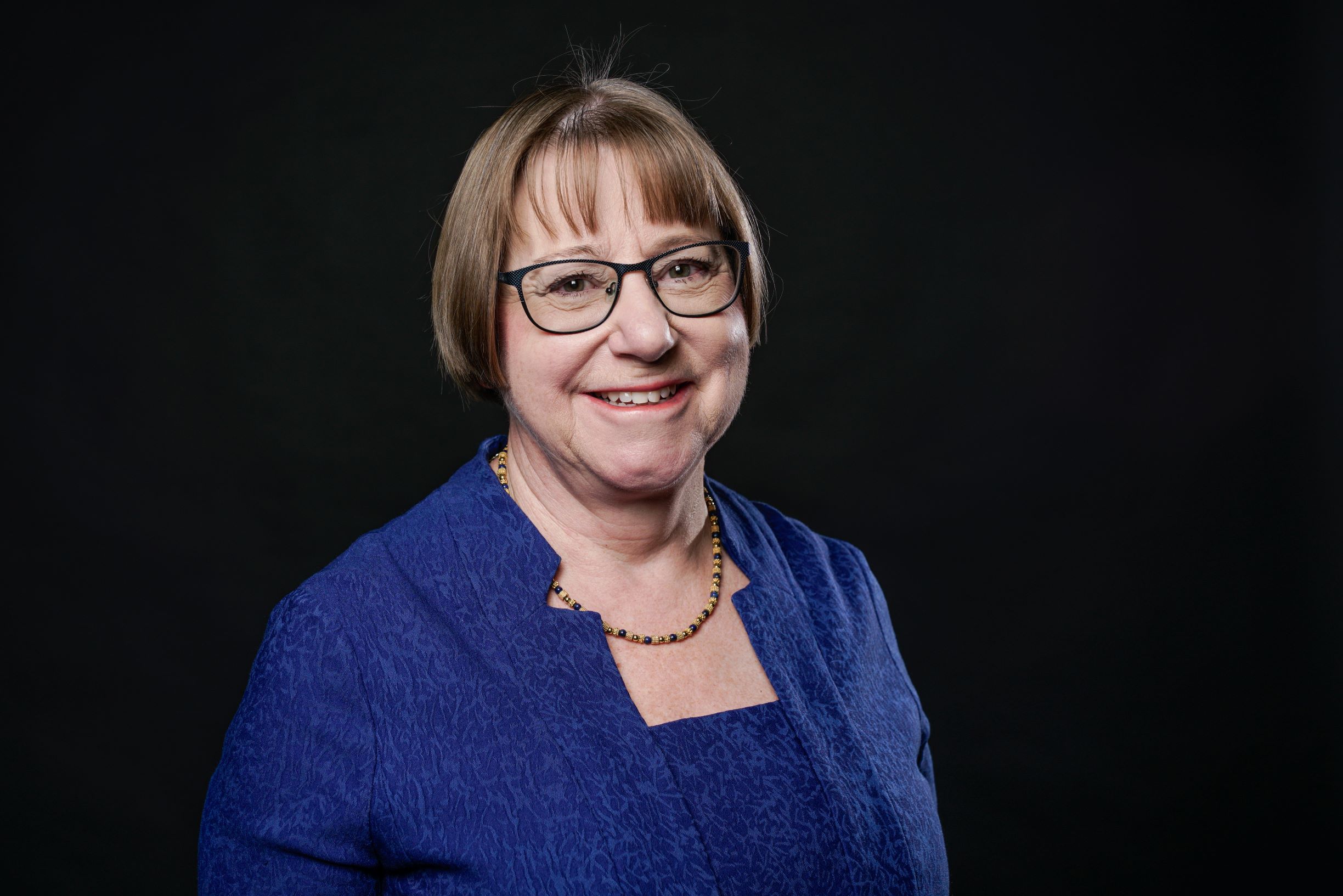
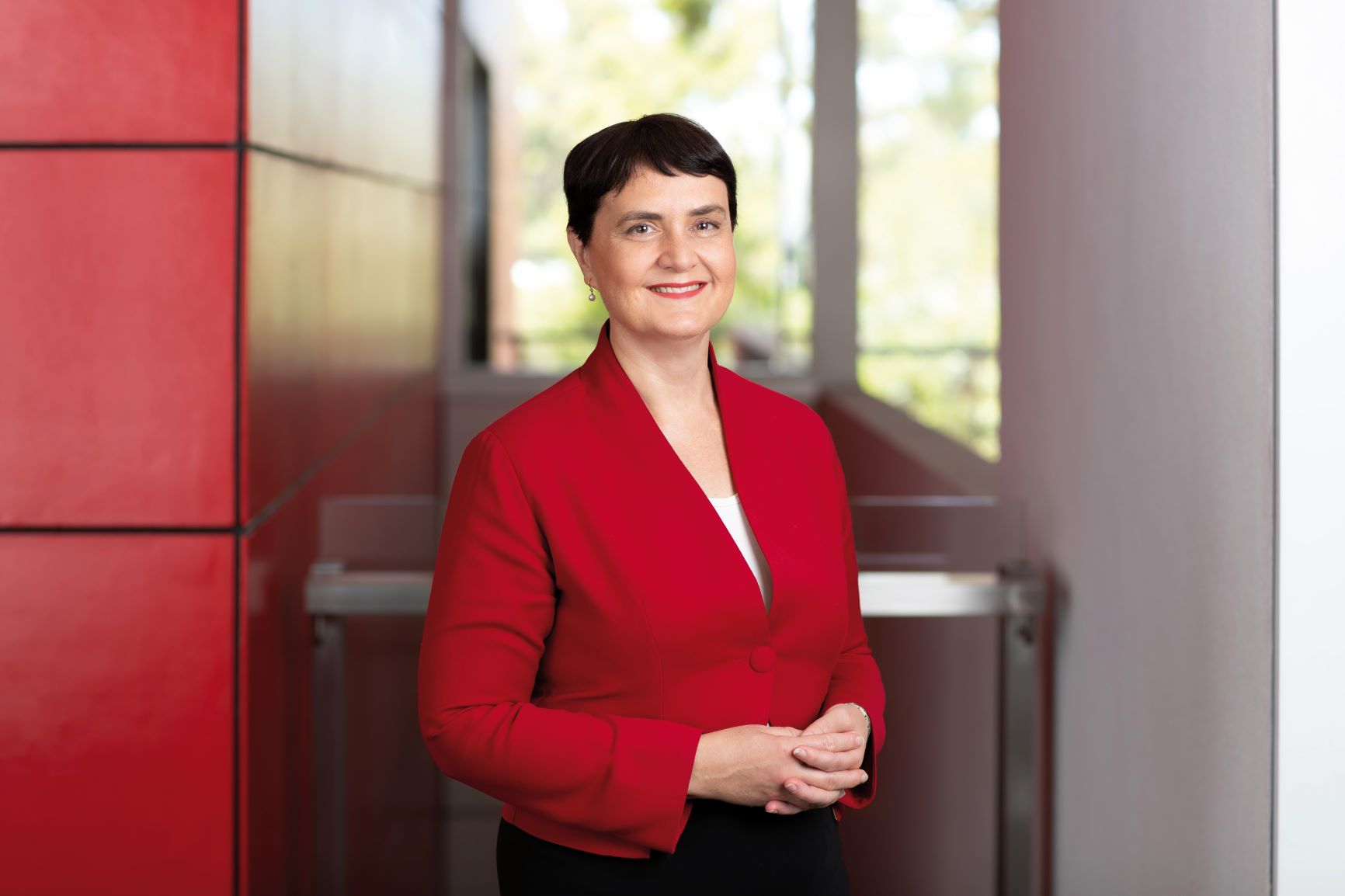
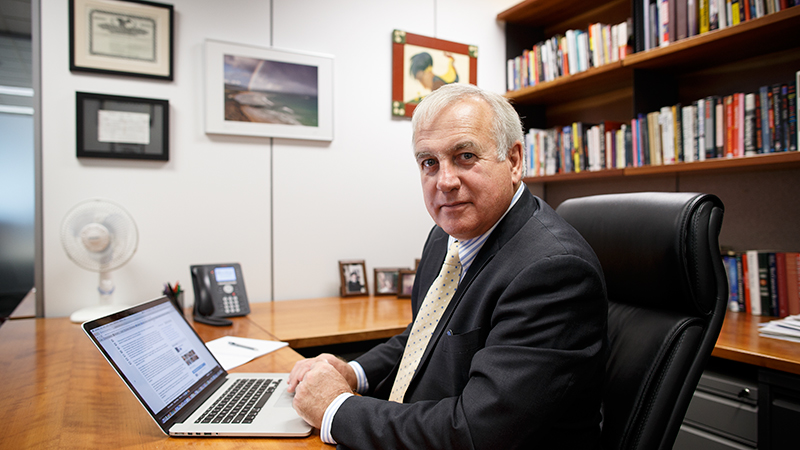
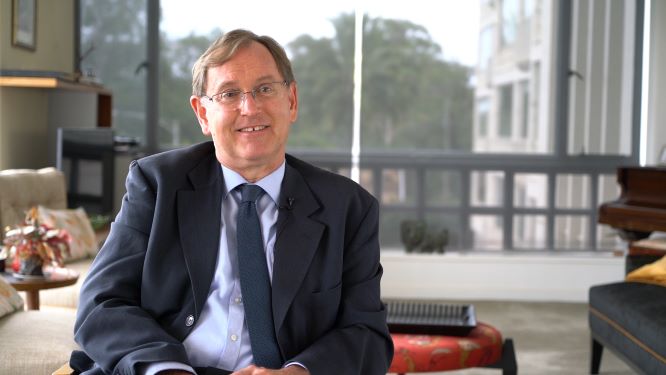
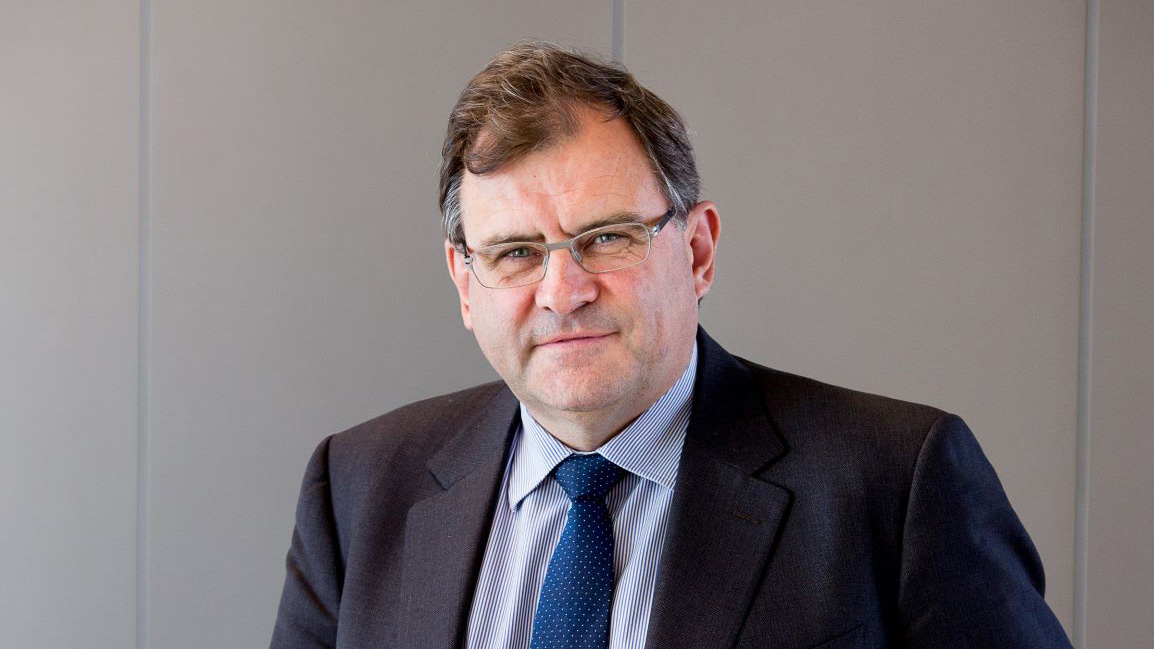
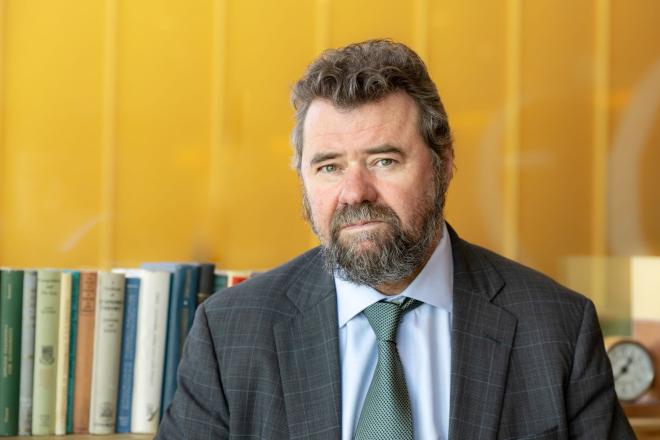
Peter Dawkins has been Vice-Chancellor and President of Victoria University since January 2011.
This follows six years in high-level leadership roles for the Victorian Government, and twenty-eight years in the university sector.
Peter is a regular contributor to policy debates in the area of education, especially tertiary education. Peter is currently leading a transformation agenda at Victoria University that will shape the University between now and 2030.
Victoria University positions itself as the University of Opportunity and Success, supporting the career development of students from diverse countries, cultures, socioeconomic and educational backgrounds. In its research and engagement agenda Victoria University focusses on applied and translational research and making a difference to industry, community and public policy.
Peter was awarded an Order of Australia in the 2017 Queen’s Birthday Honours List for his outstanding service to tertiary education as an administrator and academic.
Professor Glyn Davis AC joined the Paul Ramsay Foundation as Chief Executive officer in January this year. He was previously Vice-Chancellor at the University of Melbourne.
Alongside his role at the Foundation, Glyn Davis remains Distinguished Professor of Political Science in the Crawford School of Public Policy at the Australian National University. In 2018 Professor Davis was elected a Visiting Fellow at the Blavatnik School of Government and a Visiting Fellow at Exeter College, Oxford. He also holds visiting appointments at Kings College London, Manchester University and the Faculty of Arts, University of Melbourne.
Professor Davis is a public policy specialist, with experience in government and higher education, who delivered in 2010 the Boyer Lectures on the theme The Republic of Learning. His community work includes partnering with Indigenous programs in the Goulburn-Murray Valley and Cape York, and service on a range of arts boards, including the Queensland and Melbourne Theatre Companies.
Professor Annabelle Duncan became the Vice-Chancellor and Chief Executive Officer of the University of New England (UNE) in 2014, after joining UNE as the Deputy Vice-Chancellor Research in 2010 and then as Deputy Vice-Chancellor. Prior to this, Professor Duncan spent 16 years at CSIRO, including 6 years as Chief of the Division of Molecular Science, before serving as the Deputy Director and Chief Operating Officer at the Bio21 Institute at Melbourne University and the Executive Director of Science Collaboration and Transition in the Centre for Agricultural Bioscience.
Professor Duncan acted as an advisor to the Department of Foreign Affairs and Trade on biological weapons control, representing Australia at international arms control meetings and acting as a biological weapons inspector with the United Nations in Iraq. She was awarded a Public Service Medal (1996) and an Honorary Doctorate of Science (DSc) from Murdoch University (2005) for her work in arms control.
In 2018, Professor Duncan was appointed a Fellow of the Australian Academy of Technology and Engineering for her work as both an educational leader and educator in science and technology since 2018. She completed a Bachelor of Science and her Masters at the University of Otago and her PhD at La Trobe University.
Professor Carolyn Evans is Vice-Chancellor and President of Griffith University. Carolyn graduated with degrees in Arts and Law from the University of Melbourne and a doctorate from Oxford where she studied as a Rhodes Scholar. Carolyn taught law at Oxford and Melbourne Universities. Prior to commencing at Griffith, Carolyn held the positions of Dean of Law, Deputy Vice-Chancellor (Graduate and International) and Deputy Provost at the University of Melbourne. Carolyn works in the areas of law and religion and human rights and has published and spoken on these issues around the world.
Professor Peter Høj commenced as Vice Chancellor and President of The University of Queensland in October 2012. Prior to this appointment he was Vice-Chancellor and President of the University of South Australia from June 2007. 2004-2007 he was CEO of the Australian Research Council and Managing Director of the Australian Wine Research Institute 1997-2004. He was educated at the University of Copenhagen, majoring in biochemistry and chemistry, has a Master of Science degree in biochemistry and genetics, a PhD in photosynthesis, an Honorary Doctorate from the University of Copenhagen, University of South Australia and the University of Adelaide.
Professor Høj is a Director of the Board of Group of Eight (Go8) Universities and in 2017 was the Chair. He is a member of the Australian Medical Research Advisory Board (AMRAB).He is a Fellow of the Australian Academy of Technological Sciences and Engineering and a Foreign Member (Natural Sciences Class) of The Royal Danish Academy of Sciences and Letters. In 2018 Professor Høj was announced as a Fellow of the National Academy of Inventors (USA). In January 2019 Professor Høj was awarded an AC in the Australia Day Honours awards for service to higher education, commercialization of research and policy development and reform. In April 2019 Professor Høj received the 2018 CASE Asia-Pacific Leadership Award.
Alan has been covering business and markets as a financial journalist for 48 years, including two stints as the Financial Review’s Chanticleer columnist and periods as editor of The Age and the AFR. He also started Eureka Report in 2005 and Business Spectator in 2007.As well as being Editor-in-Chief of InvestSMART Group, Alan is currently finance presenter on ABC News, Business Editor at Large of The Australian, presenter of the Talking Business channel on Qantas radio and an adjunct professor in the business faculty at Victoria University.
Megan Lilly is the Head of Workforce Development for The Australian Industry Group (Ai Group), Managing Director of the Australian Industry Group Training Services (AiGTS) and the AiGroup Graduate Employment Services. Prior to this she was the Chief Executive Officer of Business Services Training Australia, the national industry advisory board for the business services and related industry sectors. Before joining the national board, she held several senior management positions in various Victorian TAFE institutes.
Ms Lilly is a member of the Australian Industry Skills Committee (alternating Director), Chair of Manufacturing Skills Australia, Deputy Chair – Worldskills Australia, member of the Australian College of Educators, member of the Salvation Army Disability Employment Services Advisory Committee, and the Naval shipbuilding College – Delivery Advisory Committee. She has been a member of the Australia India Education Council, including Chairing the Skills Working Group, Australian Qualifications Framework Council, Queensland Ministerial Commission, Victorian Skills Commission and Australia Pacific Technical College. Megan was a member of the National Skills Standards Council, and the National Quality Council. Megan also chaired the Joint COAG-NQC Working Group – VET Products for the 21 Century and has presented at international conferences. She has a Masters in Educational Policy and Administration.
Dr Donald Markwell is the Warden of St Paul’s College at The University of Sydney. A Rhodes Scholar, he has held numerous senior academic roles in Australia and internationally, including as the first Rhodes Scholar to serve as Warden of Rhodes House, Oxford (2009-2012). He has led the Menzies Research Centre (2012-1013) and served as Deputy Vice-Chancellor (Education) of the University of Western Australia (2007-2009). Prior to these appointments, he served as Warden of Trinity College, University of Melbourne (1997-2007) and as Fellow & Tutor at Merton College, Oxford (1986 -1997). Dr Markwell worked closely with Sir Zelman to record his oral history and in preparation of A public life: the memoirs of Zelman Cowen (2006).
Professor Duncan Maskell is the 20th Vice-Chancellor of the University of Melbourne, a role he commenced in October 2018. He took his undergraduate and PhD degrees at the University of Cambridge. He did post-doctoral research at Wellcome Biotech and the University of Oxford, and became a Lecturer at Imperial College London, before returning to Cambridge as a Professor. He went on to become Head of the Department of Veterinary Medicine there, then Head of the School of the Biological Sciences, before becoming the Senior Pro-Vice-Chancellor, responsible for the University’s Planning and Resources, with oversight of its £2 billion turnover.
In a distinguished academic career Professor Maskell has published more than 250 research papers, leading a large research group working on bacterial infections of livestock and people, and was elected a Fellow of the Academy of Medical Sciences. An active entrepreneur, Professor Maskell has co-founder of four biotech companies, including Arrow Therapeutics Ltd and Discuva Ltd, has advised many more, and was a member of the University of Cambridge Seed Fund Investment Committee, and on the Board of Cambridge Innovation Capital, a patient capital fund. He was also a main Board member of Genus plc, a FTSE250 company.
Jan Owen is a social entrepreneur, innovator, influencer and author. As CEO of the Foundation for Young Australians for the past 8 years, Jan has led the organisation’s strategic mission to equip young people to create, lead and thrive into the future. This focus has included ground-breaking research regarding the future of work and education for young Australians; the largest in-school entrepreneurship and youth social enterprise programs in the nation; and the development and launch of several new initiatives including YLab, FYA’s youth-led social enterprise.
Jan’s lifelong work and commitment to unleashing the talent of young people, driving social innovation and entrepreneurship, and transforming education has seen her recognised as one of Australia's ‘True Leaders’ in 2018 and the Inaugural Australian Financial Review and Westpac ‘Woman of Influence’ in 2012. Jan has been awarded honorary Doctorates from the University of Sydney and Murdoch University in Perth and membership to the Order of Australia in 2000 for services to the Australian community. Jan is the author of Every Childhood Lasts a Lifetime (1996) and The Future Chasers (2014).
Professor Beth Webster is the Director of the Centre for Transformative Innovation at Swinburne University of Technology and Pro Vice Chancellor (Research Policy and Impact). She has a PhD (Cambridge), M Economics (Monash) and B Ec (hons) (Monash). She is also an Honorary Professorial Fellow, at the Universities of Melbourne and Oxford. Her research interests cover several areas of applied economics including innovation; intangible capital; intellectual property; firm performance and public policy for the translation of science.
Under the name Elizabeth Webster she has authored over 100 articles on the economics of innovation and firm performance and has been published in RAND Journal of Economics, Review of Economics and Statistics, Oxford Economic Papers, Journal of Law & Economics and Cambridge Journal of Economics. She has been appointed to a number of committees including the Lomax-Smith Base funding Review; the Bracks’ Review of the Automotive Committee; CEDA Advisory Council; the Advisory Council for Intellectual Property; European Policy for Intellectual Property Association; and Asia Pacific Innovation Network.
Professor Simon Wilkie is Dean and Head of Monash Business School. His previous academic appointments include Professor of Economics and Communications Law at USC Department of Economics and Gould School of Law, Chair of the Department of Economics at USC and Executive Director of the USC Center for Communications Law and Policy. Prior to USC, he was an Assistant Professor of Economics at Caltech, and Member of Technical Staff at Bell Communications Research. His academic research focuses on game theory its application to business strategy, economic policy design, and the tele-communications industries.
In addition to his academic career, he served as Chief Economist at the U.S. Federal Communications Commission from July 2002 to December 2003, reporting directly to Chairman Michael Powell. From 2014 to 2018 he held the position of Chief Economic Policy Strategist at Microsoft. He is co-founder of Competition Economics, and in that capacity has advised corporate and government clients on spectrum auctions, strategy, competition policy and regulatory issues, and several start-ups on strategy.
Sponsors


